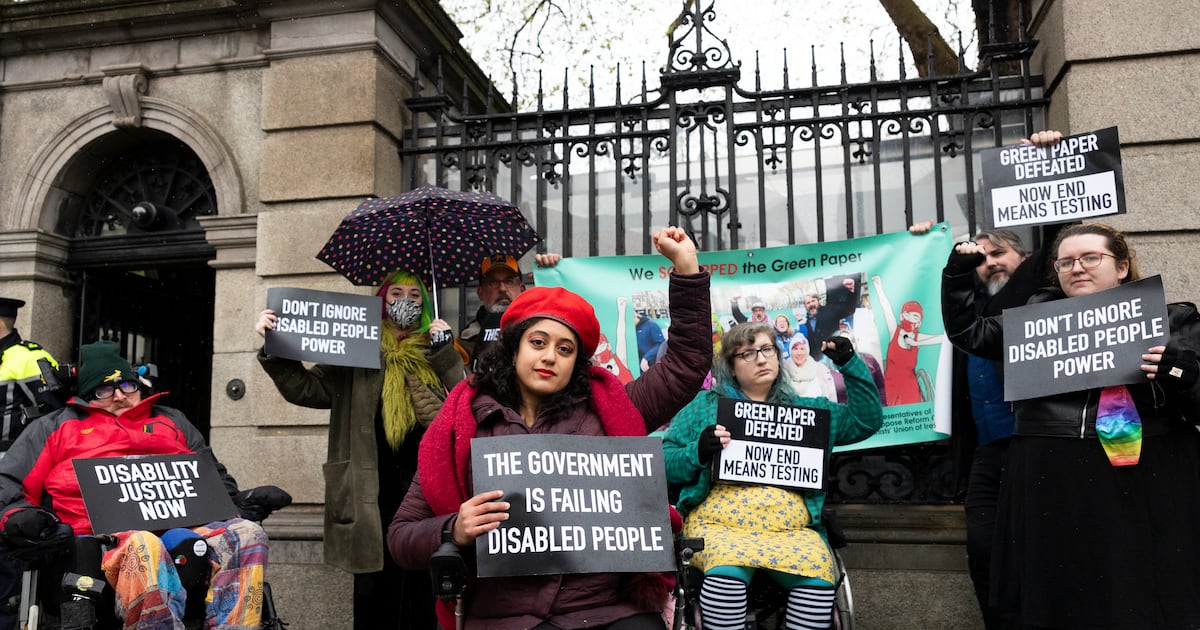More Civil Service posts, public jobs and a doubling of employment advisers for disabled people are among commitments contained in a new national disability strategy to be published on Wednesday.
The long-awaited National Human Rights Strategy for Disabled People 2025-2030, is to be unveiled by the Taoiseach Micheál Martin.
It notes people’s “frustration with a system that has failed many individuals and families” and follows consultations with 34 focus groups and five town hall events, drawing on almost 500 responses to a national survey and more than 80 written submissions.
The document revolves around five pillars and will include 23 commitments and a variety of actions.
The pillars comprise inclusive learning and education, employment, independent living and active participation, wellbeing and health and transport and mobility.
The strategy, seen by The Irish Times, makes repeated reference to the UN Convention on the Rights of People with Disabilities (UNCRPD), ratified by Ireland in 2018, marking a firm move away from a charitable approach to disability to a rights-based model.
In 2024, the State acceded to the UNCRPD optional protocol, meaning people can bring cases to the UN where they believe their rights have been breached.
“We are committed to equality for disabled people as rights holders,” notes the strategy. “Disabled people are entitled to equitable treatment and to have opportunities like everyone else has in Irish society, without discrimination.”
[ Fighting for basic rights is exhausting Opens in new window ]
The Taoiseach has identified disability and the barriers faced by disabled people and their families as a key priority for his Government.
While a majority of the commitments are couched in terms of supporting, encouraging and aiming towards real improvements for disabled people, many lack firm numbers, targets or specified resources to achieve them.
It is likely to be welcomed by disabled people’s organisations as a significant first step towards a rights-based framework. However, they will seek details on how its aspirations will be realised to measure its success.
It comes two years after the ill-fated Green Paper on reform of disability payments. The most detailed commitments are under its employment pillar.
“Our ambition is to substantially reduce the employment gap between disabled people and others who are in employment,” it says, and to “enhance the opportunities for disabled people who can earn a living, to do so”.
Additional employment advisers are to be based at Intreo centres, which act as a single point of contact for employment and income supports and services.
“We will lead by example and maximise opportunities and access for disabled people to get meaningful work in the civil and public sector” and “expand the number and range of work placement opportunities with mentoring support and explore clear pathways to permanent employment in the Civil Service.”
There is likely to be disappointment at the lack of detail on ensuring all disabled children have access to necessary therapeutic supports, and the absence of commitment to introduce adult safeguarding legislation.
It says the Department of Health will “develop a new policy on adult safeguarding in the health and social care sector, covering the full spectrum of healthcare and social care provided by public, private and voluntary services”.
Tánaiste Simon Harris, Minister for Children and Equality Norma Foley and Minister of State with responsibility for disability Hildegarde Naughton will also attend the strategy launch in Dublin.

